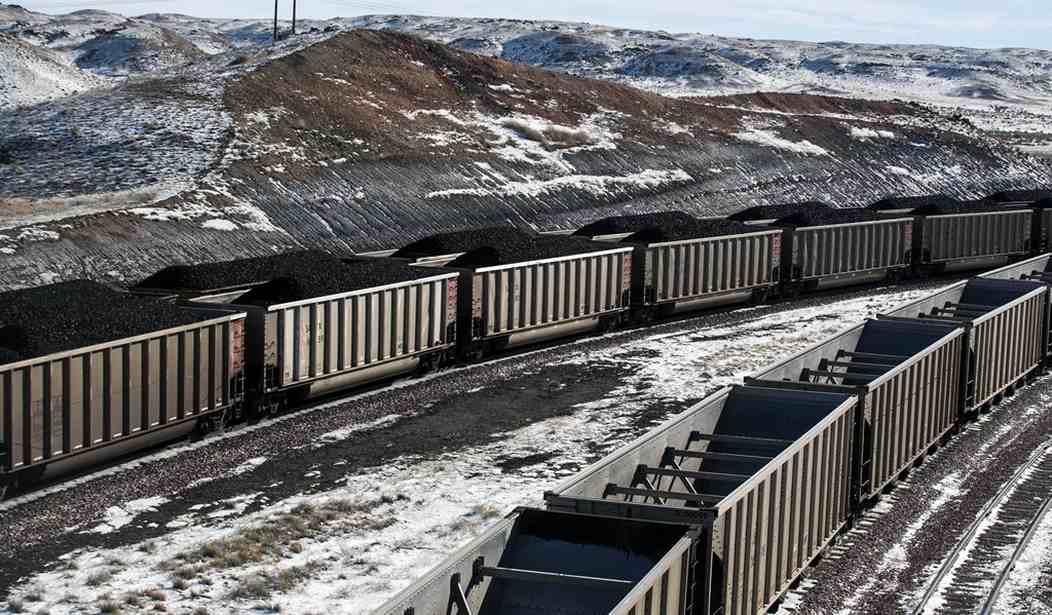Joe Biden, who has fancied himself a pro-union president, is calling on Congress to impose a contract agreement on 12 railroad labor unions and rail carriers in order to avert an economically ruinous strike that could begin as early as December 9.
The tentative agreement reached in September was rejected by four of the unions, leading to the necessity for further negotiations. Those negotiations have broken down, leading to Biden’s directive to Congress.
“I am calling on Congress to pass legislation immediately to adopt the Tentative Agreement between railroad workers and operators — without any modifications or delay — to avert a potentially crippling national rail shutdown,” Biden said in his statement on Monday evening.
The unions enjoy no sick days, although they can take paid vacation days for time off. That, and management’s adoption of a draconian new staffing model that heavily penalizes workers for missing time for any reason, has some of the unions eager for a work stoppage.
“As a proud pro-labor President, I am reluctant to override the ratification procedures and the views of those who voted against the agreement,” he said. “But in this case — where the economic impact of a shutdown would hurt millions of other working people and families — I believe Congress must use its powers to adopt this deal.”
A group of 400 businesses sent a letter to Biden asking that he intervene in the labor dispute, citing the catastrophic impact of even a short work stoppage.
The business groups led by the U.S. Chamber of Commerce, National Association of Manufacturers and National Retail Federation said even a short-term strike would have a tremendous impact and the economic pain would start to be felt even before the Dec. 9 strike deadline. They said the railroads would stop hauling hazardous chemicals, fertilizers and perishable goods up to a week beforehand to keep those products from being stranded somewhere along the tracks.
“A potential rail strike only adds to the headwinds facing the U.S. economy,” the businesses wrote. “A rail stoppage would immediately lead to supply shortages and higher prices. The cessation of Amtrak and commuter rail services would disrupt up to 7 million travelers a day. Many businesses would see their sales disrupted right in the middle of the critical holiday shopping season.”
Labor and management negotiations in the railroad industry are both governed by the Railway Labor Act, a 1920s-era legislation that was passed to try and prevent exactly the kind of strikes that are being threatened today.
The RLA “provides dispute resolution processes for railway carriers and labor unions, as well as establishes a National Railroad Adjustment Board (NRAB) and a National Mediation Board (NMB). The NRAB, which is an adjudicatory board, has primary jurisdiction over minor disputes growing out of grievances or out of the interpretation or application of agreements between rail labor unions and carriers.” according to the Congressional Research Service.
For more serious disputes — like the kind of dispute we see today — the RLA allows for a “Presidential Emergency Board” that could request an intervention by Congress to settle the dispute or could recommend another 60-day “cooling off” period. Biden doesn’t see any chance that a cooling-off period will result in a deal, hence, his request to Congress.
The immediate economic impact would be felt by gas station owners and diesel fuel marketers.
All diesel machines that are built with more than 74 horsepower are required to have a systemto reduce pollution, and that system uses diesel exhaust fluid, which is made from water and urea. Sixty to 70 percent of ethanol transport happens on rail. It cannot be transported in oil pipelines because of its alcohol content.
“The U.S. economy in many ways revolves around transportation fuel, and if the necessary components to that fuel cannot get to where they are needed, the market impact will be drastic,” Neuman said in a statement. “A prolonged railroad shutdown will constrain the nation’s fuel supply by disrupting the availability of ethanol, which is often an essential component of gasoline, and diesel exhaust fluid, which most heavy-duty trucks need to run.”
Congressional intervention has been necessary in resolving rail disputes 17 times over the last 60 years. But it should be entertaining watching all those pro-labor Democrats squirming over the heavy-handed imposition of a deal that four of the unions rejected.










Join the conversation as a VIP Member